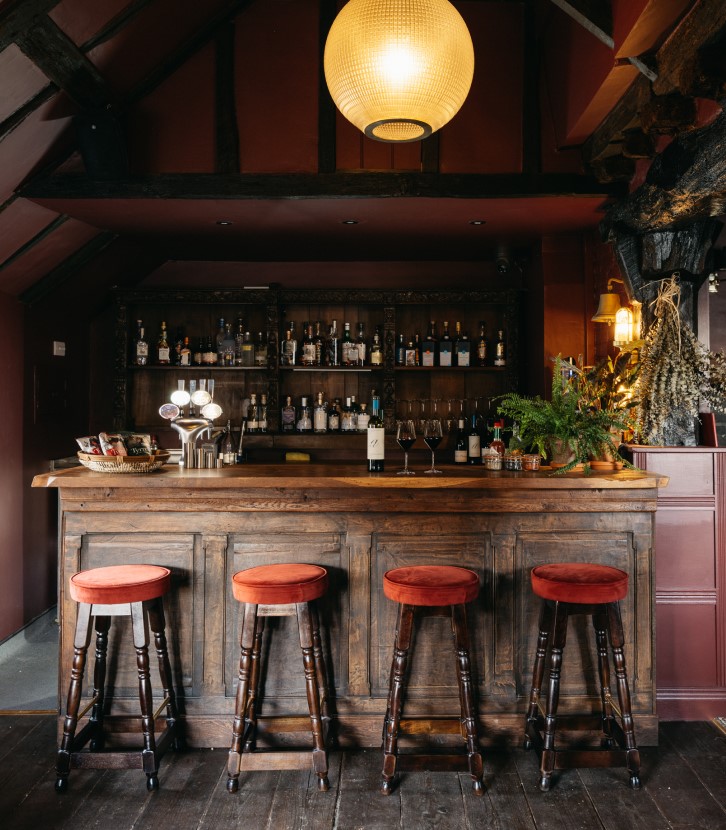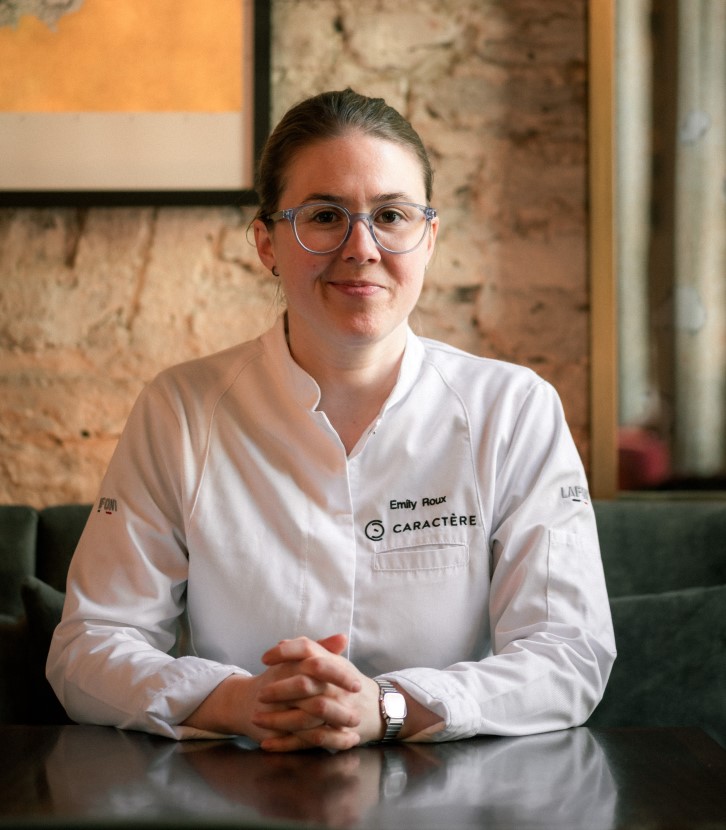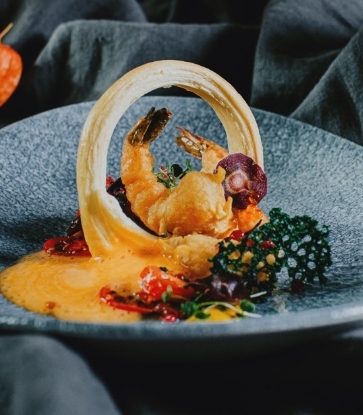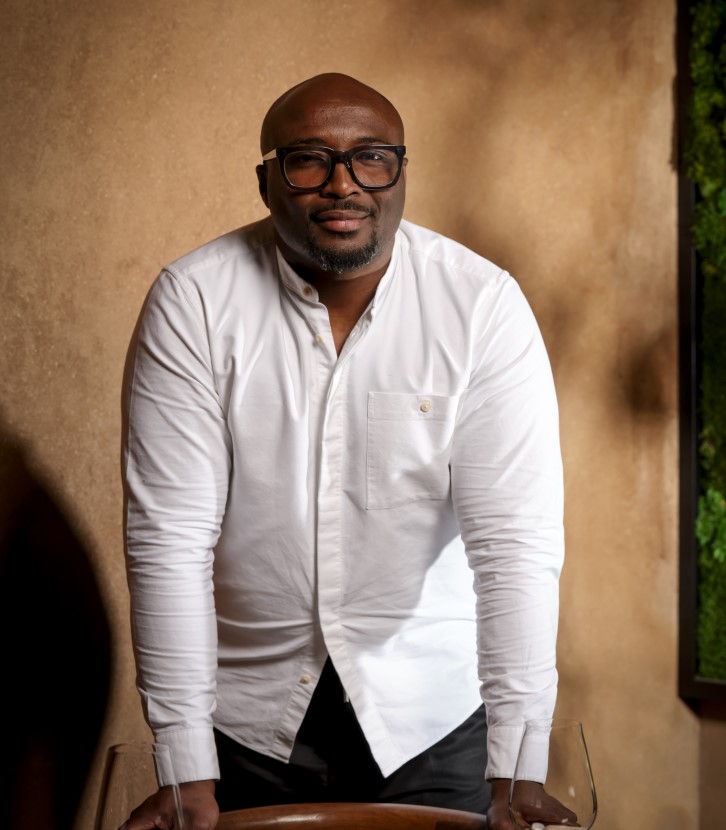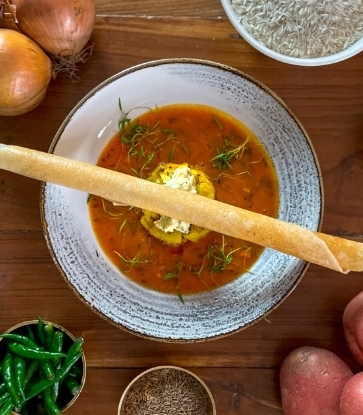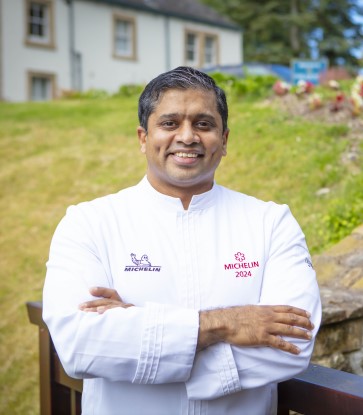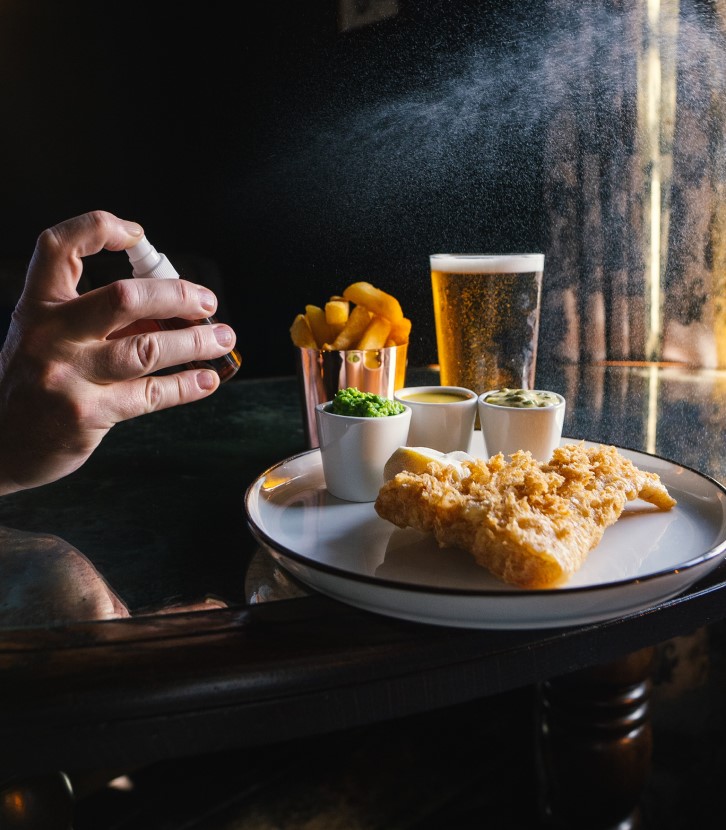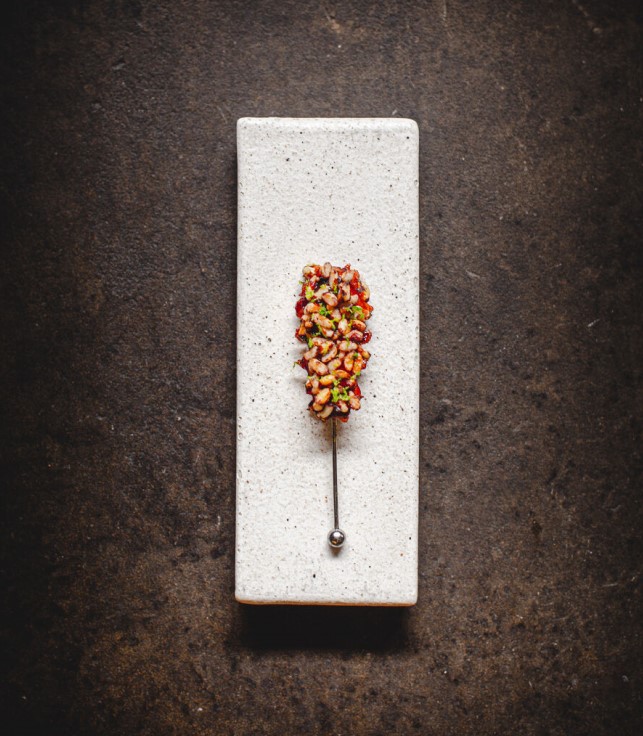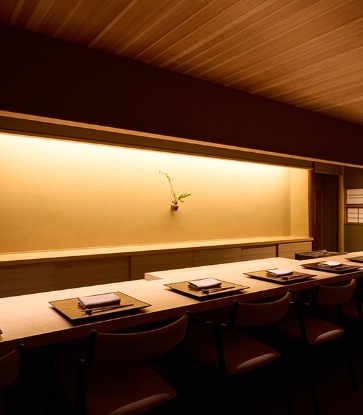In uncertain times we often find ourselves in a contemplative frame of mind and we at the MICHELIN Guide are no different. We’ve often wondered what it takes for chefs to get to the top of their profession so we asked a few of them to tell us about the people who inspired them, taught them and influenced them along the way.
For this first article we’ll hear from four chefs:
Aktar Islam, Chef-Owner of Opheem in Birmingham
Sally Abé, Head Chef of The Harwood Arms, Fulham
Taylor Bonnyman, Chef-Owner of The Five Fields, Chelsea
Stephen Stevens, Chef-Owner of Sosban & The Old Butchers, Menai Bridge
For many chefs, their earliest memories are often food related and there’s usually one family member who inspired them:
Aktar: I remember when I was about six or seven going grocery shopping with my mum, touching vegetables and mimicking what my mother was doing, like washing rice and being mesmerised by the grains passing through my fingers. We used to watch programs like ‘Food and Drink’ together; I laugh at those times as my mother who’s Muslim would marvel at the recipes and say they were wonderful till they splashed some wine in!
Sally: One of my earliest memories is from when I was about 9, and my mum and I decided to bake croissants together. It was so much fun but ended up taking a lot longer than we were expecting! I remember feeling so happy though because my mum let me stay up late to finish them with her.
Taylor: In many ways, I’ve benefitted from a happy sequence of fortuitous events. My first cooking experiments arose from a prolonged sporting injury, meaning I couldn’t get out of the house much at the weekend. I suppose I was fourteen or fifteen. My mum did all the cooking at home: hearty, healthy, tasty food, with a broad repertoire. My parents were happy to encourage my curiosity, and bravely endured some, frankly, execrable offerings in those early days.
Parents certainly played their part and encouragement took various forms:
Aktar: I remember as a child stealing some vegetables and chicken that my mother had prepped, taking them out to the garden to cook in a pot over some twigs that I tried to burn to make a camp fire. Obviously that didn’t go down too well and I got a good firm smack on the bum but I guess that did encourage my mother to let me get more involved. So you could say a smacked arse started my career.
For others, it was grandparents and a natural curiosity that provided the inspiration:
Stephen: When I was small, I never understood why the way the food smelled while it was cooking wasn’t always the same as how it tasted. I loved the home cooking, baking and preserving experiences I had from an early age with my part-Irish grandmother. I was brought up by my grandparents and one cooking memory that’s stayed with me was when we used to cook lamb hearts on a weekly basis in the pressure cooker; however I don’t recall eating them!

As with many at the top of their profession, when choosing a career it was often a case of just doing what came naturally:
Aktar: I’ve often wondered when and if I actually made that conscious decision to become a chef and the truth is I don’t think I ever did. I don’t see it as a job or a profession; it’s just who I am – it’s what defines me. My son sums me up and it’s pretty simple: “that’s my dad and he cooks”. Whenever I’m asked the question, “what would you do if you weren’t a chef?” my mind draws a blank – I’m a very visual thinker and I genuinely see dark fog.
Sally: I really can’t imagine doing anything other than being a chef – whatever else I could have done would have had to relate to food in some way.
Some came into the industry via a more circuitous route:
Taylor: Cooking, as a career, never crossed my mind. I went to a very good school where the expectation was that pupils would go into The City, medicine or the legal profession. So I went to university, studied history, ate out, cooked for friends, and fell in love with restaurants. I had a brief dalliance with accountancy before deciding to try and become a cook.
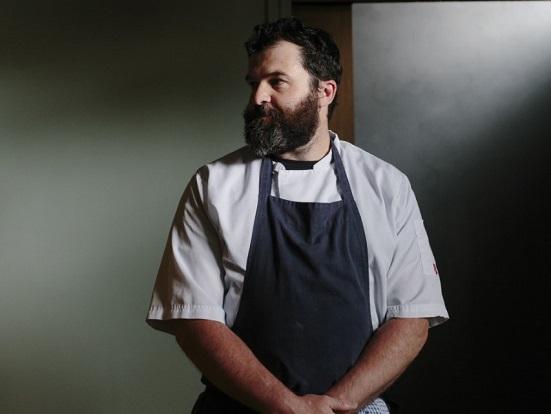
When it comes to starting their careers, nerves and excitement played their part, along with hard work:
Stephen: Of course, I didn’t want to go in the night before the first shift, I was very nervous as I wanted to do well and fulfil the Head Chef’s expectations. I loved the theatre in the kitchen before service – the adrenaline before the first check on. I loved seeing and preparing ingredients I’d never encountered before; this included the meat and fish deliveries of the day – seeing the whole fish and meat carcasses and learning how to break them down and use each and every part.
Taylor: I’m left with a lasting impression of energy, boisterous camaraderie (of which I wasn’t yet a part), and coiled aggression. It was the self-motivation I witnessed among such young people that impressed me most. I was a callow graduate who had enjoyed the benefits of a great education, but knew nothing about the world and the workplace, and there were now people my own age and younger who were instructing, teaching, and organising whole brigades of cooks.
Aktar: My father had a restaurant so it was quite normal for me to pop in on weekends to fold napkins and be paid with Coke and After Eight mints. My first shift was long and hard, my back and my hands hurt within the first two hours but I knew I had another 12 to go as I wasn’t finishing till 4am. These were the days before pass-through dishwashers, it was you, a pair of marigolds and a double-drainer sink – the degreaser was harsh on your skin but that’s how it was and you got on with it. It was a rite of passage, everyone started off as a porter. You made sure you were bloody good at your job so you’d be allowed to get involved and learn more.
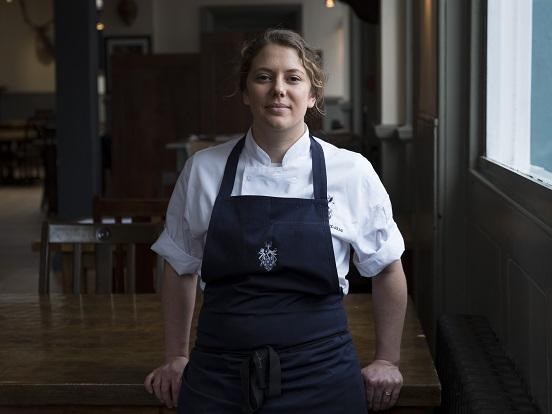
To get to the top, a willingness to learn from others is paramount:
Sally: One of the most important lessons I learned from my mentors, Phil Howard and Brett Graham, is that flavour should come first – it’s the most important thing and everything else comes second. I was only with Phil Howard for nine (very enjoyable) months but I learned from him to cook from the heart. I worked with Brett for a really long time, and he’s probably the most passionate person I’ve ever worked with. He taught me a lot about running a kitchen, the good and the bad. He’s the one that really taught me how to manage a successful kitchen.
Aktar: Gordon Ramsay had a massive influence on me as he was the one who thrust me into the national spotlight. The time spent with him whilst filming the F-Word changed me as a chef and as a person. He gave me a lot of his time off camera to coach me and to get me to question myself and look inwards. He gave me the confidence to really believe in my own ability and to be strong enough to push forward and realise my ambition. I owe him a lot and I will always be thankful.
Stephen: Marcus Wareing really opened my eyes to the world of cooking and demonstrated how it wasn’t “just a job”, it was your life. He instilled the groundings in me that I still carry out today: to clean as you go and keep a spotless kitchen, how timing is everything, and the ability to multitask. I also learnt to turn the stresses and pressures of the kitchen in to a positive. Chris Chown taught me how to work within a small team. He also used only locally sourced products or ingredients grown in the surrounding gardens – which you didn’t need to do much to, as they were in their prime. Chris was a firm believer in not wasting anything – an indispensable trait.
To stay at the top means always learning and seeking inspiration:
Aktar: I often joke that I should put my mother on the payroll as I’ve never written a menu that doesn’t feature something influenced by her. A dish for our summer menu is built around a tomato broth that she cooks. I’ve been fortunate enough to travel a lot and what I taste and experience finds its way into my work. I’ve spent so much time travelling through India and experiencing all the regional diversity and cultural nuances. At Opheem we celebrate this culinary heritage and draw inspiration from chefs from the royal and noble courts; the Ni’matnama really delves into their thought processes.
Sally: Understanding how to cook deer is the single biggest thing that I learned from Brett Graham. Before I worked at The Ledbury, I hadn’t cooked much game before, and it’s now a specialist skill of mine that I really enjoy. I get inspiration from some of the great cookbooks from ground-breaking British food writers of the 1960s like Jane Grigson, and also from Simon Hopkinson; wonderful writers as well as fabulous cooks. But the greatest inspiration for me is seasonal produce – putting fresh food at its peak on my menus.
Taylor: Paul Liebrandt is the most important figure in shaping my career. Many of the influences he cited when he spoke about food resonated deeply with me. He blended preternatural technical ability and a classical foundation with ideas that flowed from natural form, art, music, popular culture and philosophy. He also articulated this approach, brilliantly, with a cutting wit.
Stephen: I take a lot of inspiration from what Anglesey has to offer naturally, which then enables me to offer something completely different and unique to our customers dining experience. Using the best ingredients available inspires me, as do the producers, and I always try to maximise flavour – be it by preserving, juicing, ageing or fermenting, in order to create memorable dishes with memorable flavours.

What would you say to your younger selves? What valuable advice have you been given and what advice would you give to the next generation?
Taylor: I would advise young cooks to approach their craft with humility, honesty, and self-awareness. If you can make yourself indispensable by putting in the hard yards, anticipating your manager’s needs, and indulging their whims, you will advance very quickly in your career. Try and meet setbacks with a smile, and don’t sulk. Most of all, question everything you are taught. Why am I doing this? When you work for someone else, follow their instructions, but cooks must be autodidacts too, and cooking is subjective. If you don’t examine why you are doing something, you’ll never grow.
Sally: To the next generation I’d say “don’t try to run before you can walk”. Being a chef takes time, you can’t learn overnight, it’s better to play the long game and learn from your mistakes, but don’t dwell on them. I’d advise my younger self to believe in myself – it took me a long time to build up my confidence, and it’s massively important to have this. But I don’t think I would have done anything differently. I have no regrets; it’s all about looking forward, you can’t change the past!
Aktar: “Focus on the cooking and let that do the talking”, that’s what I’d say to my younger self. I spent so many years as this angry and volatile chef. It was only when Gordon said these words to me that I channelled that energy in to my food. It made me a kinder person and has made the environment that I ultimately created around me happier and that has truly had such a positive impact on how I cook.
Stephen: The best advice I received: never give up and anything is possible if you put your mind to it. To my younger self: be much more open and vocal I suppose, and ask questions to understand their (Head Chef’s) way of cooking. To young chefs: not to rush into anything, learn and listen as much as possible; when you do make a mistake, ask your peers why, so that you have a better understanding. Most of all, enjoy your career in your youth and what you’re creating.
And, finally, we all need a mantra in life:
Aktar: “Make it happen because no one else will do it for you”
Stephen: “Work hard in silence, let success make the noise”






